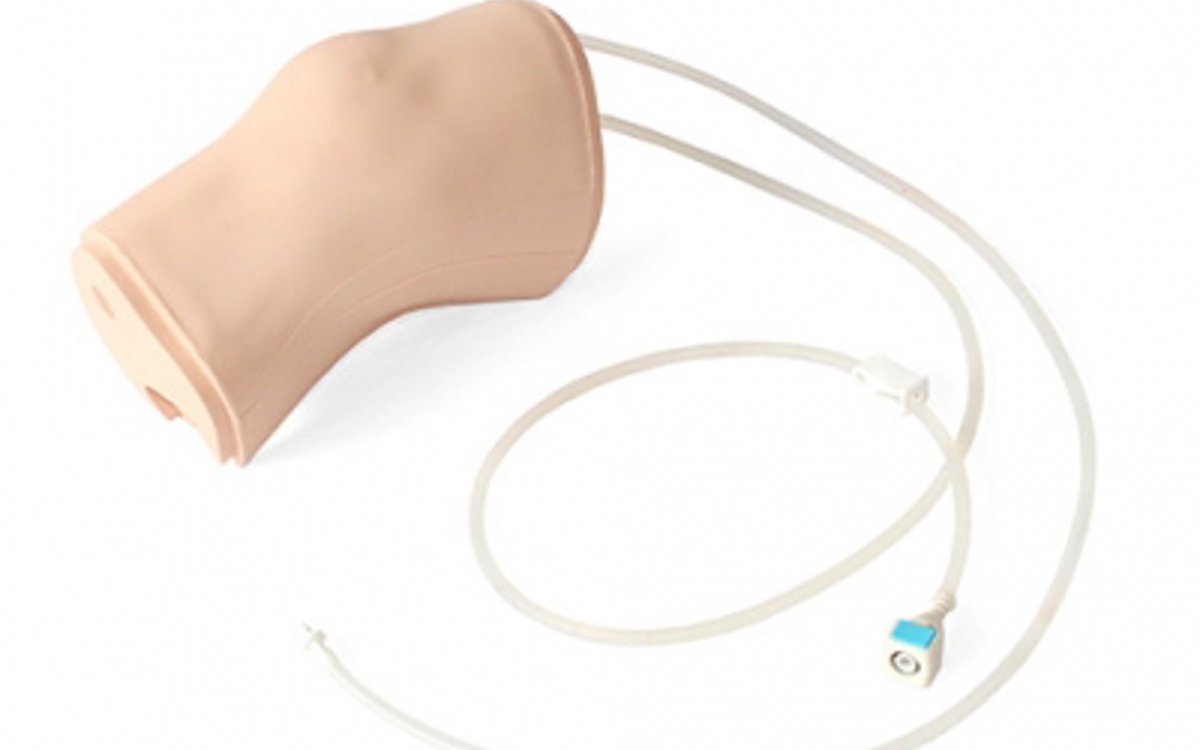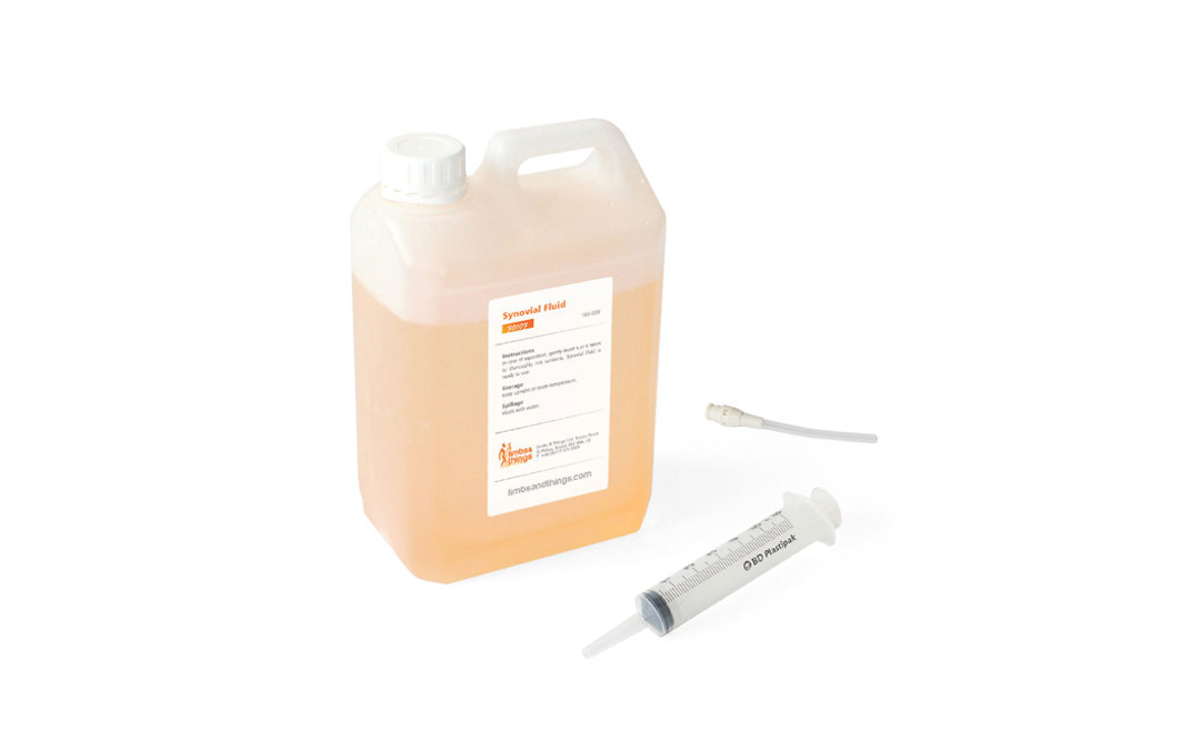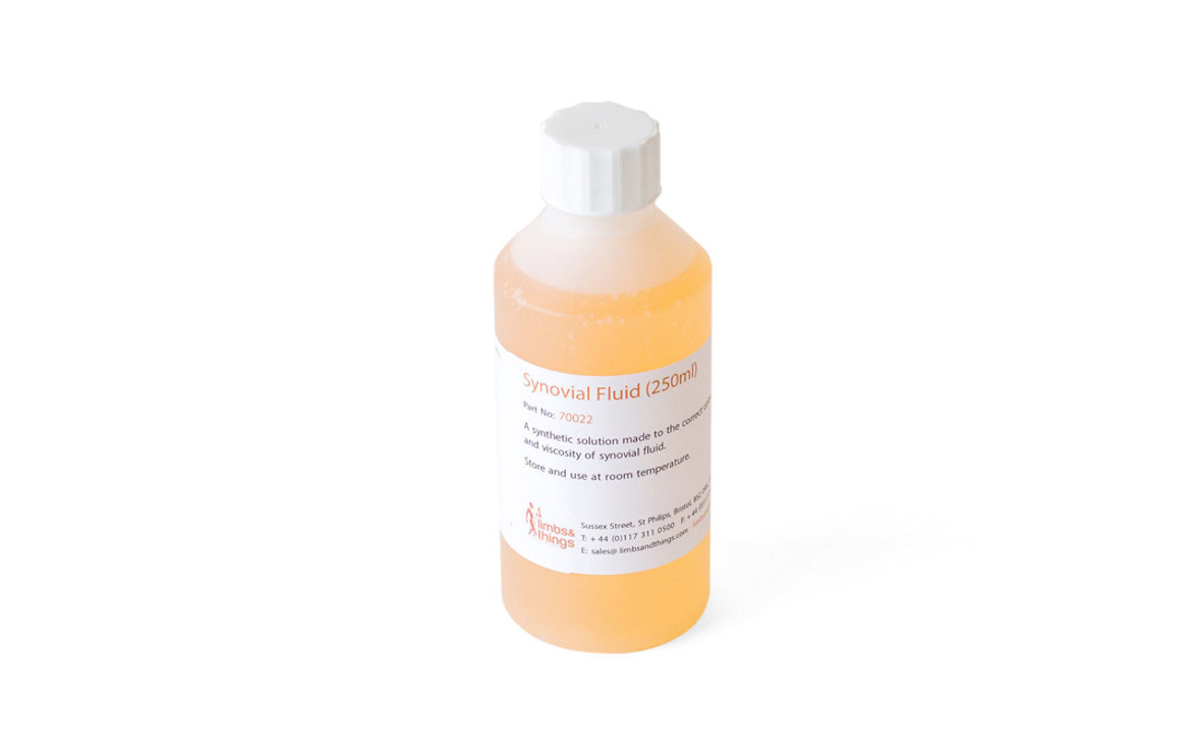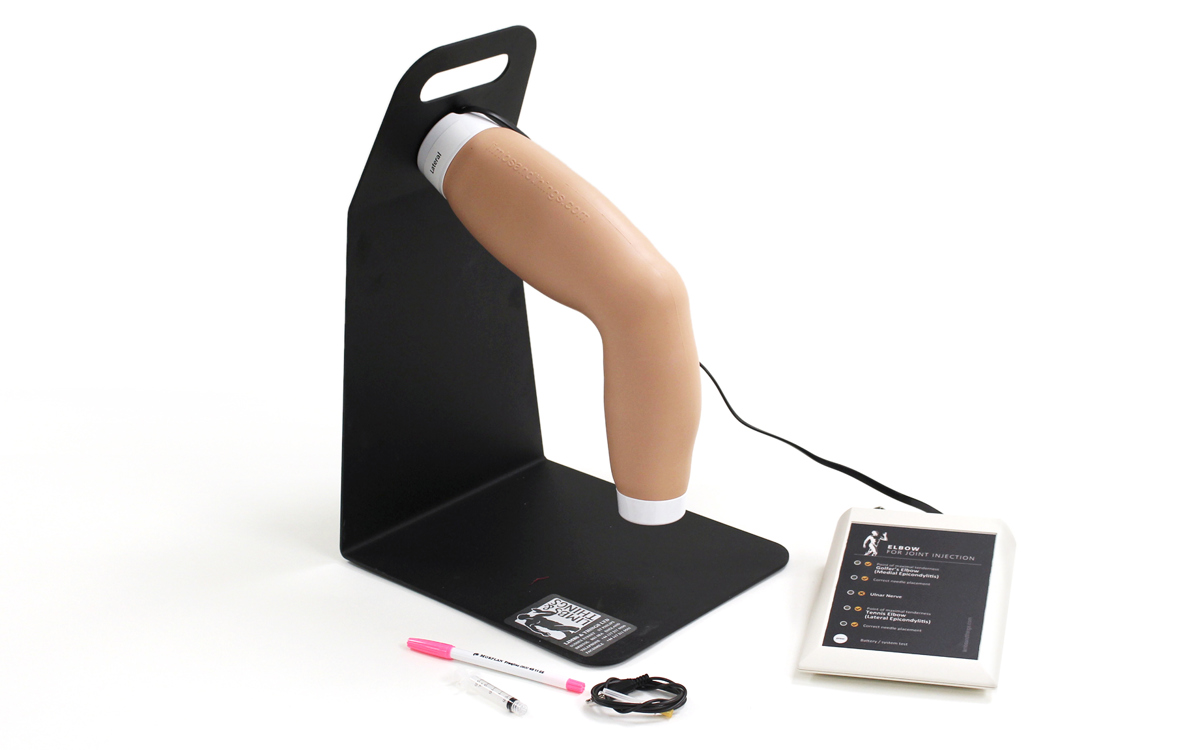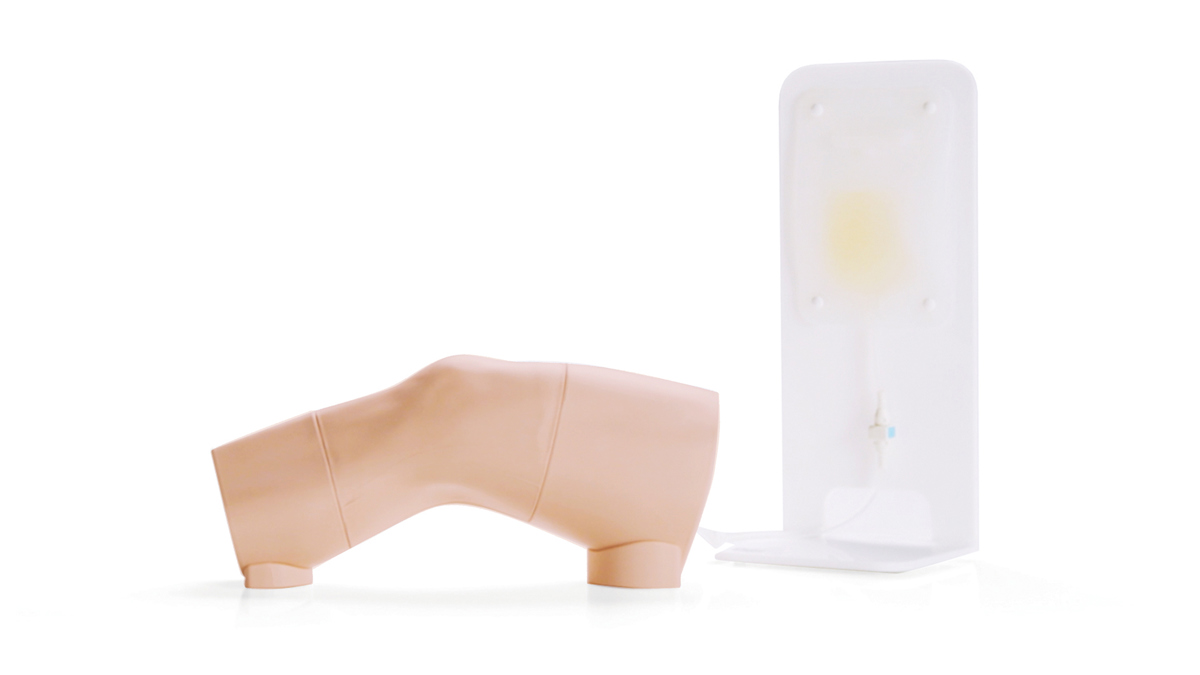
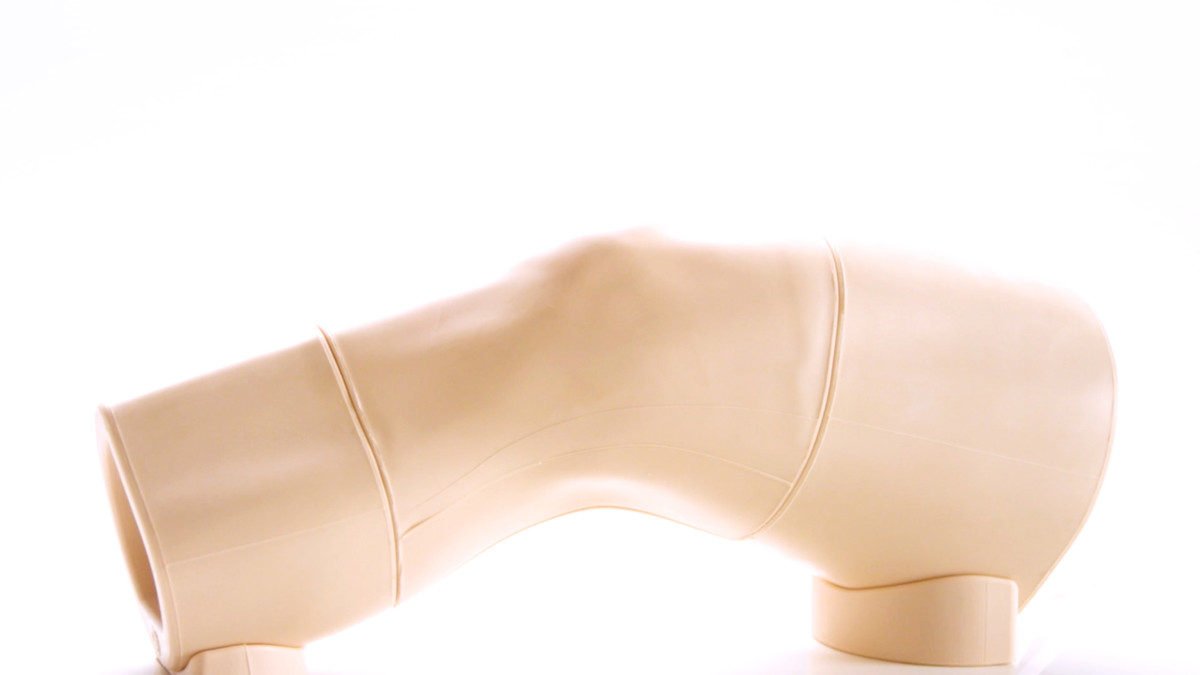
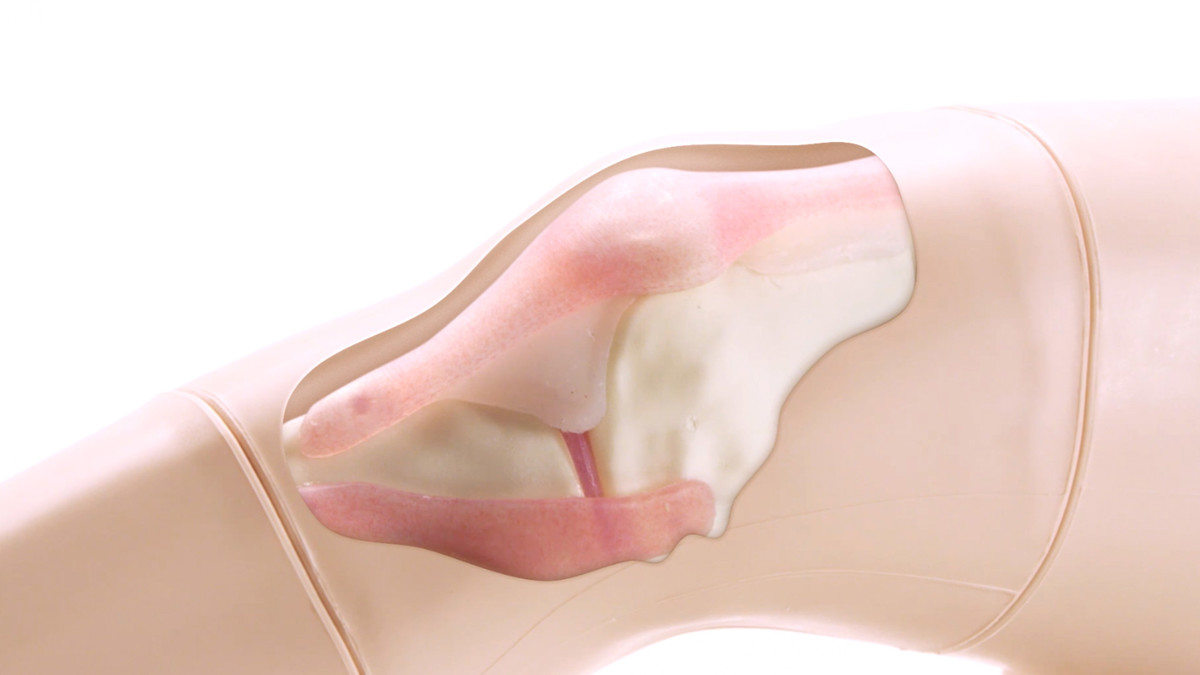
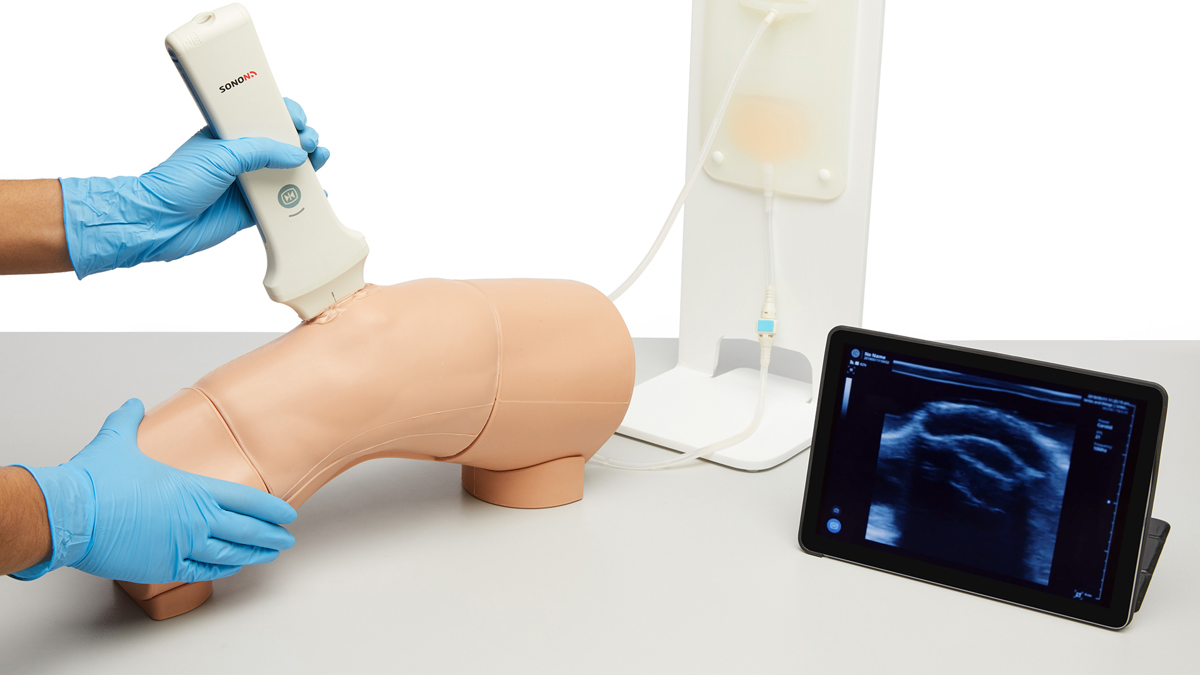
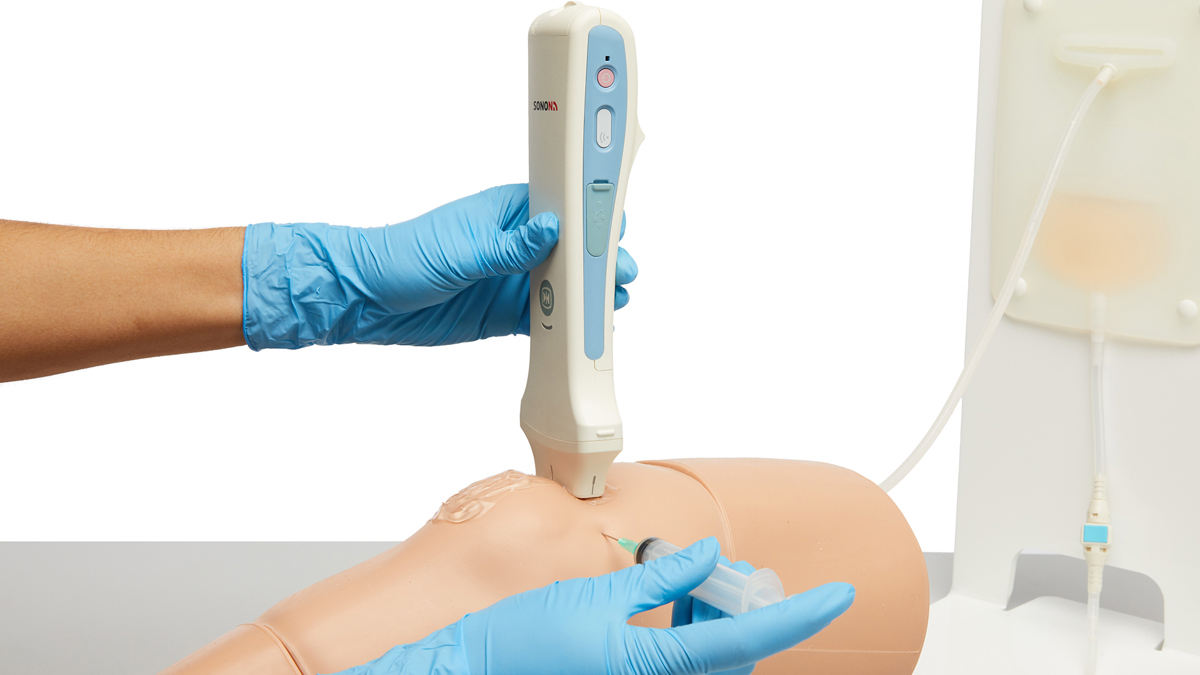
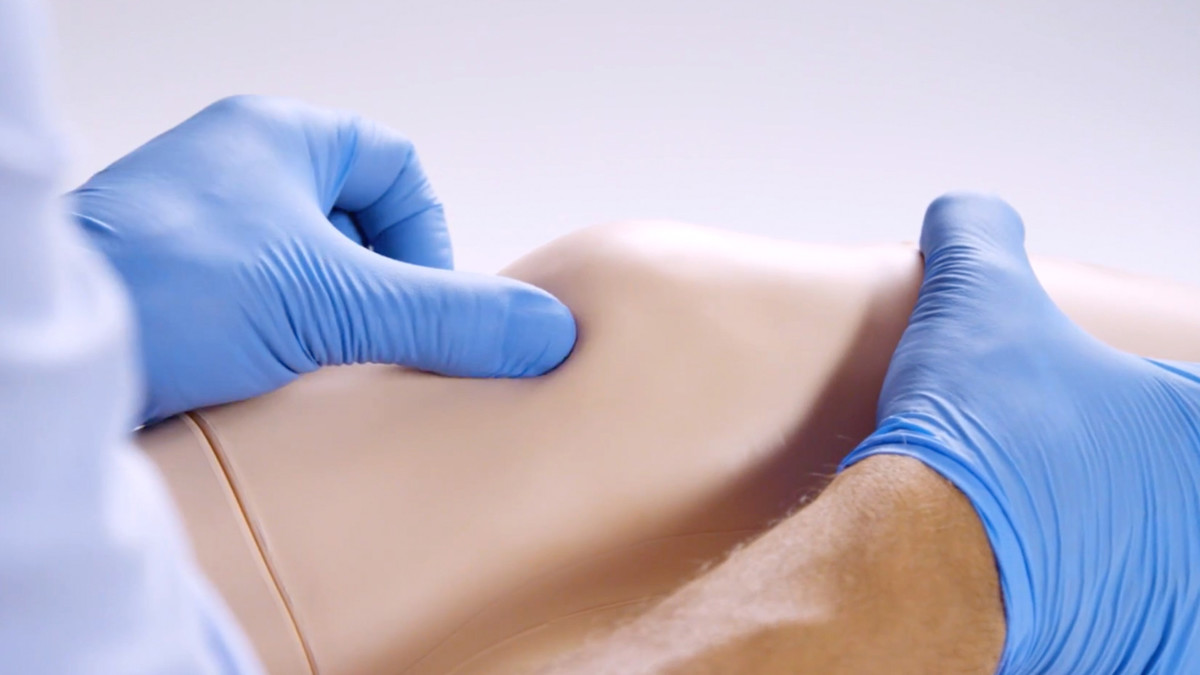
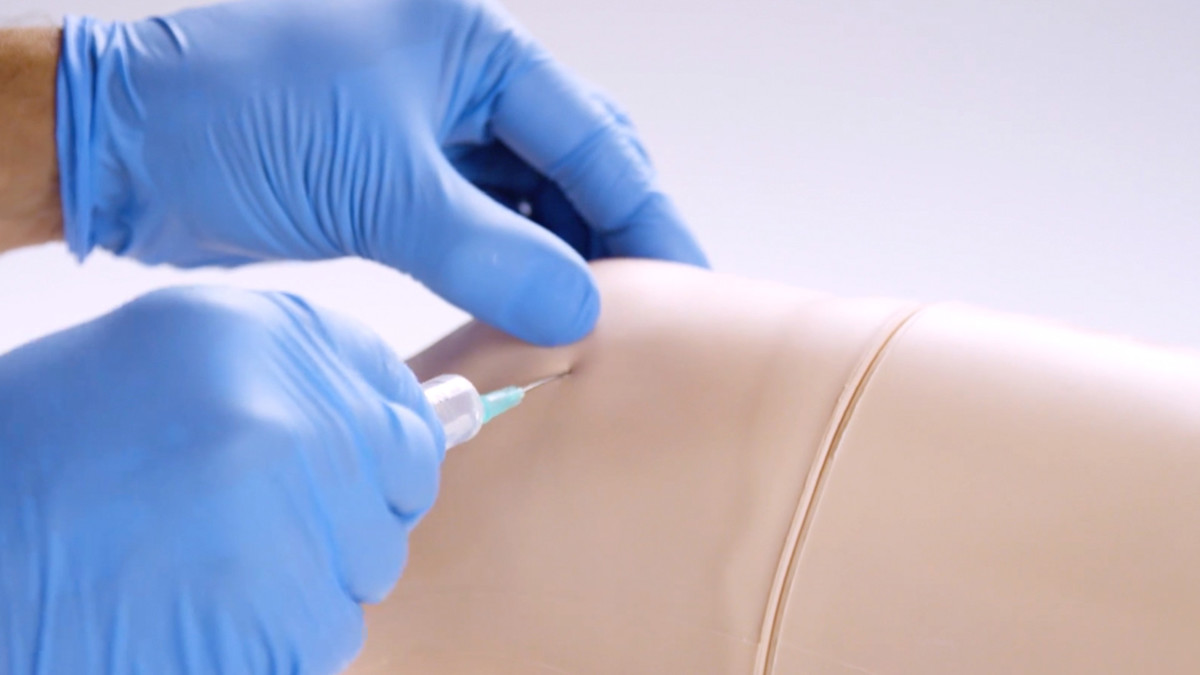
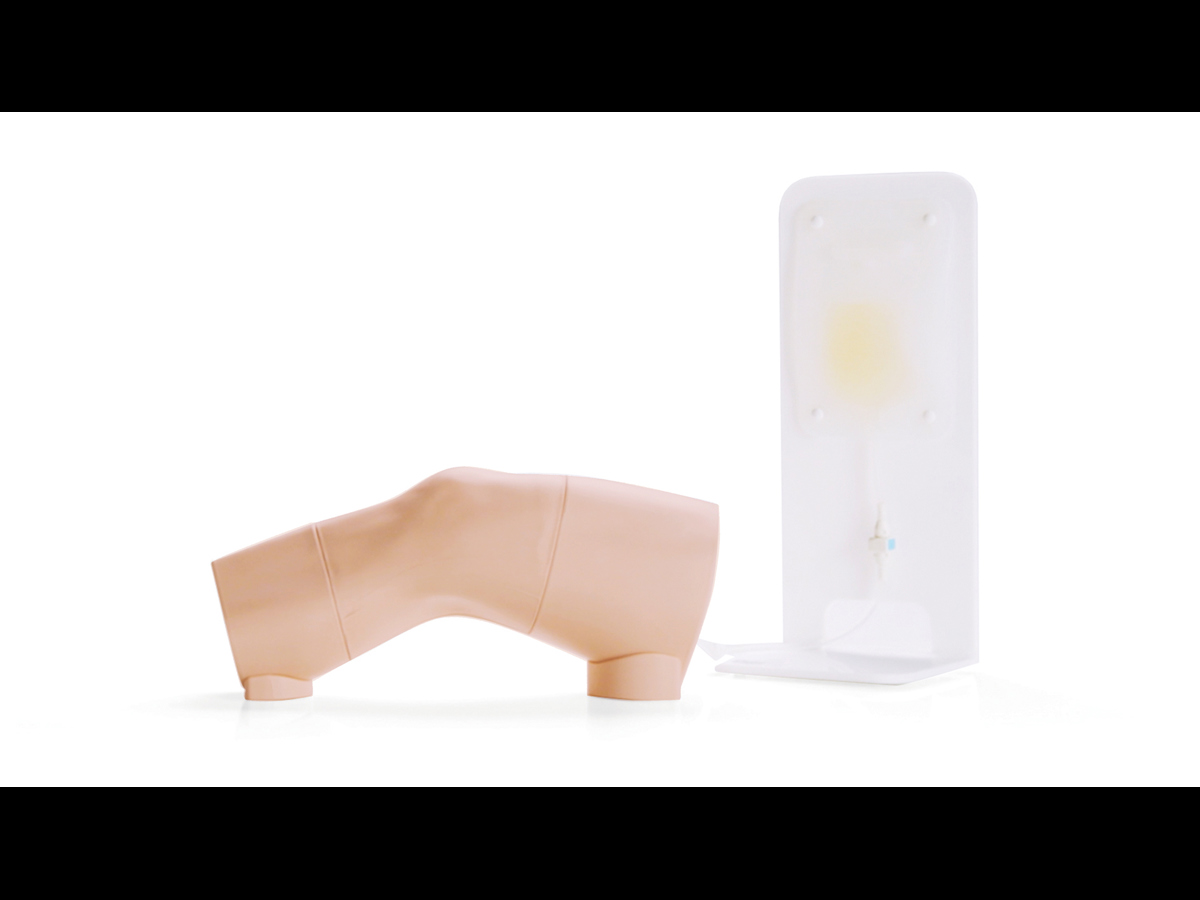
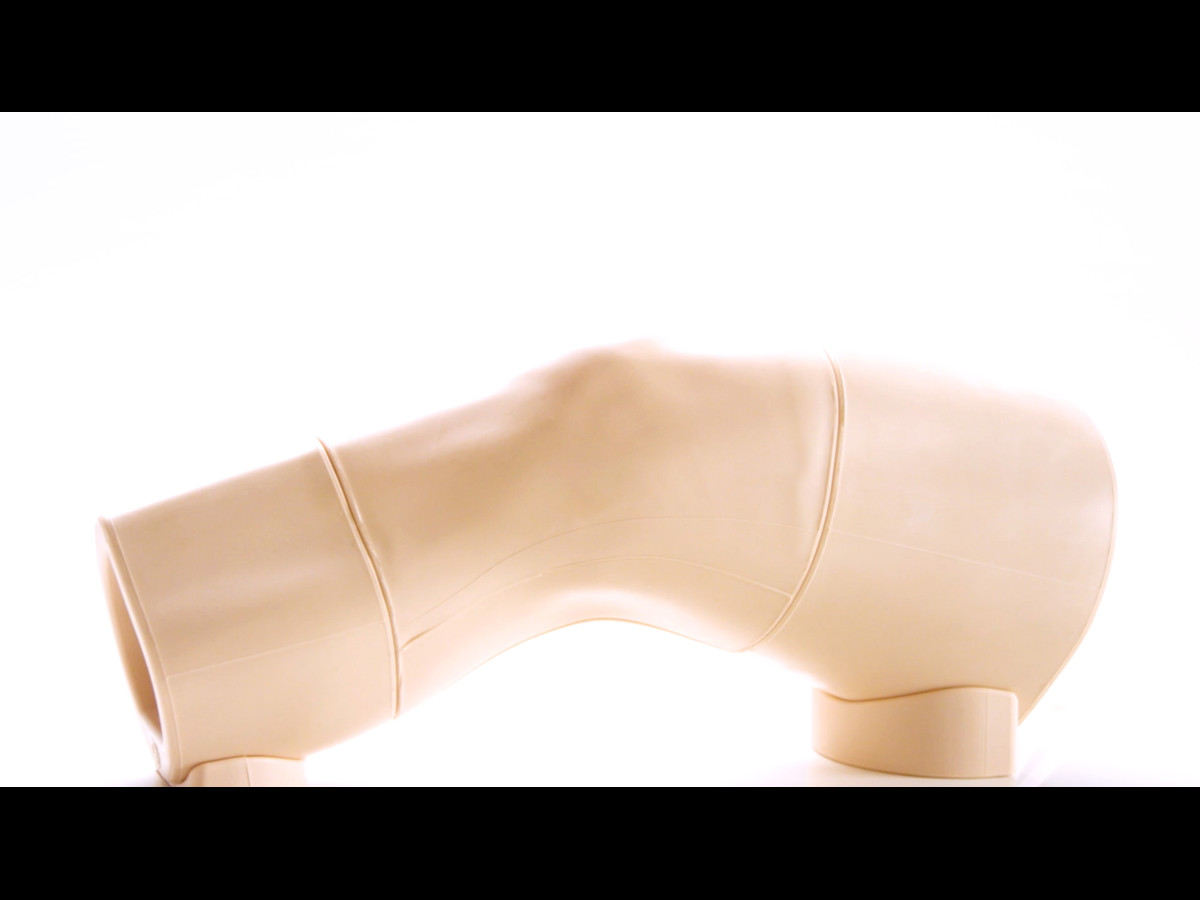

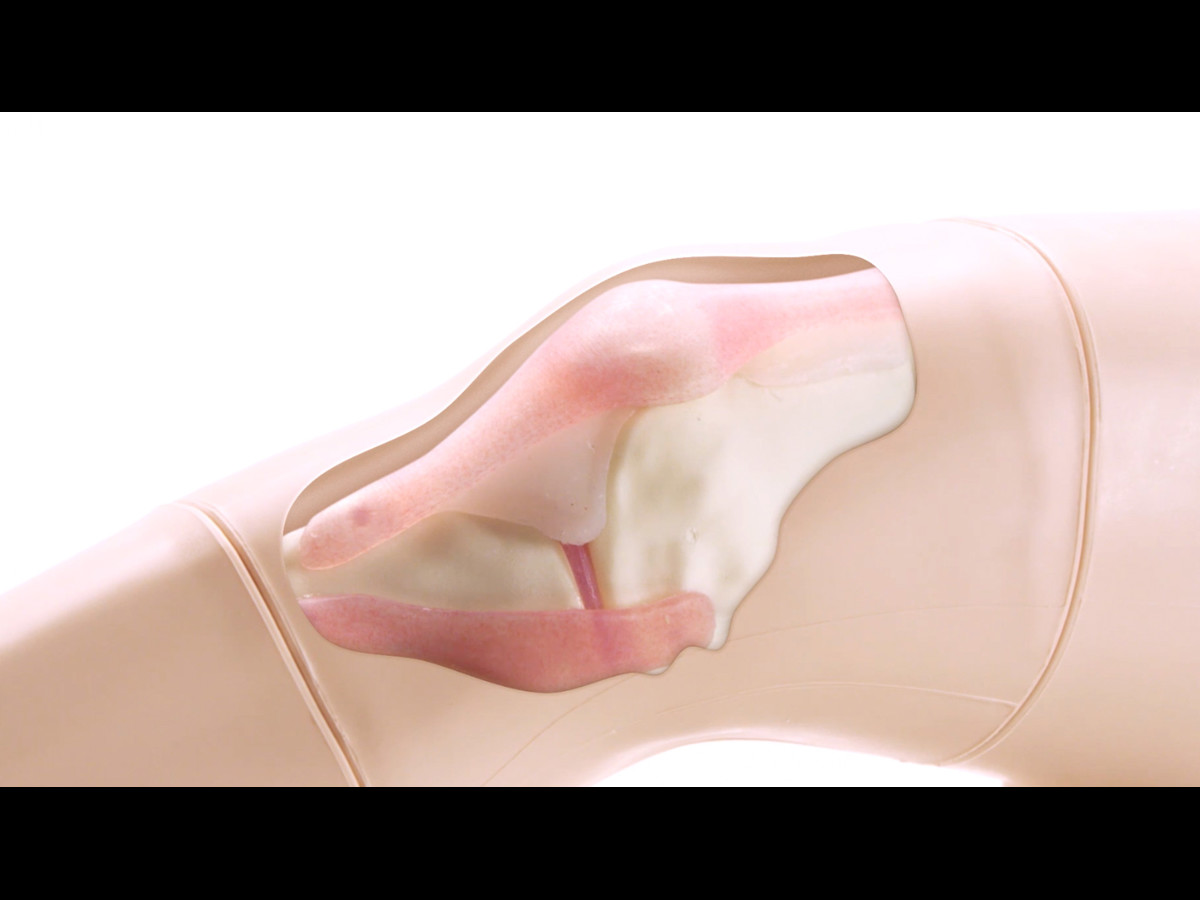
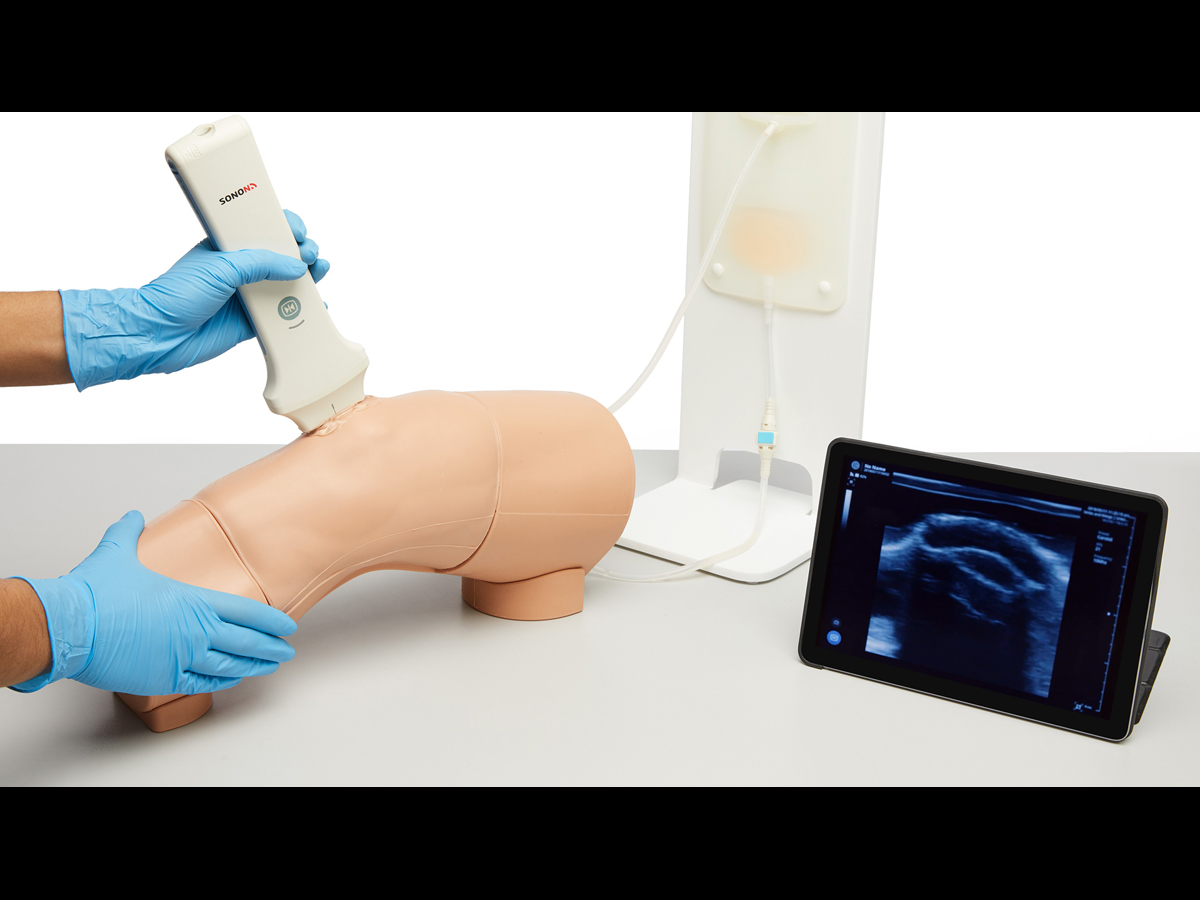
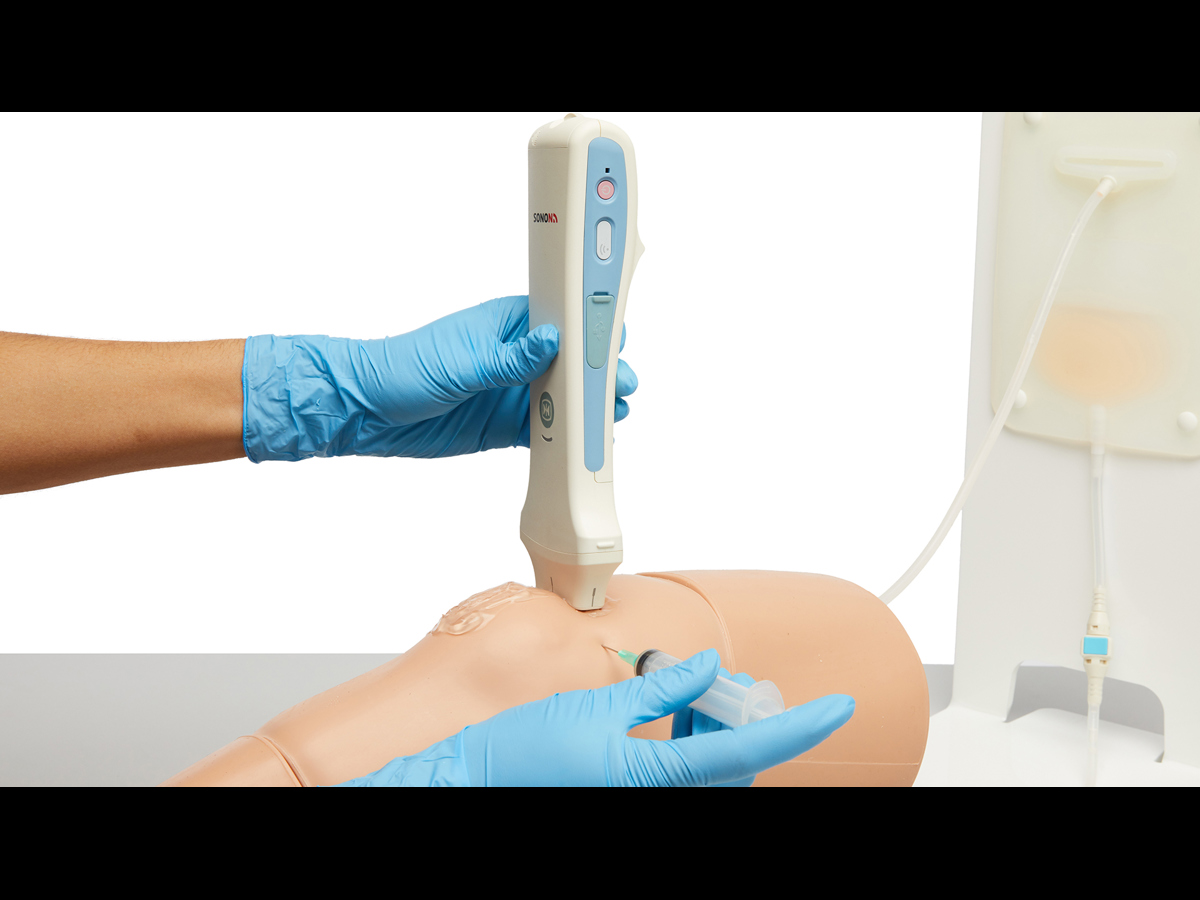
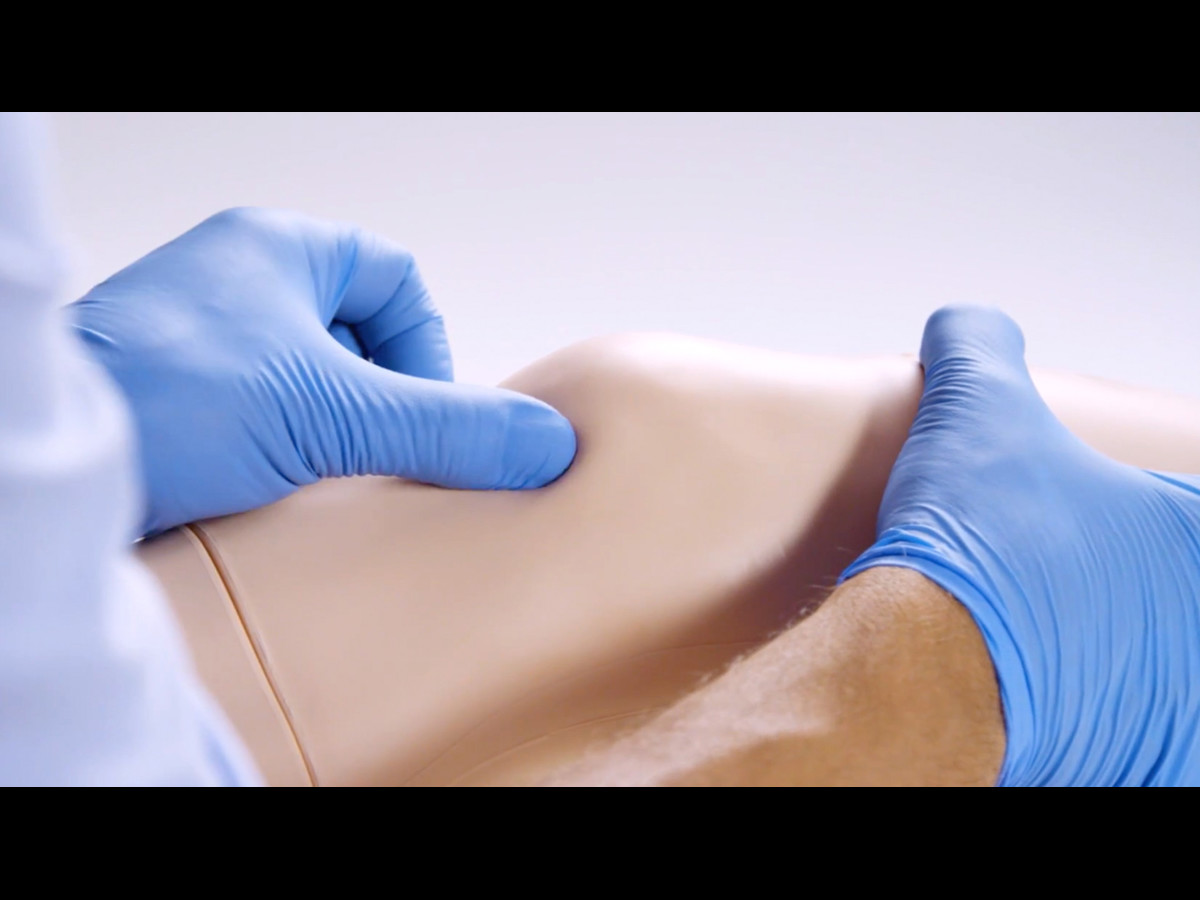
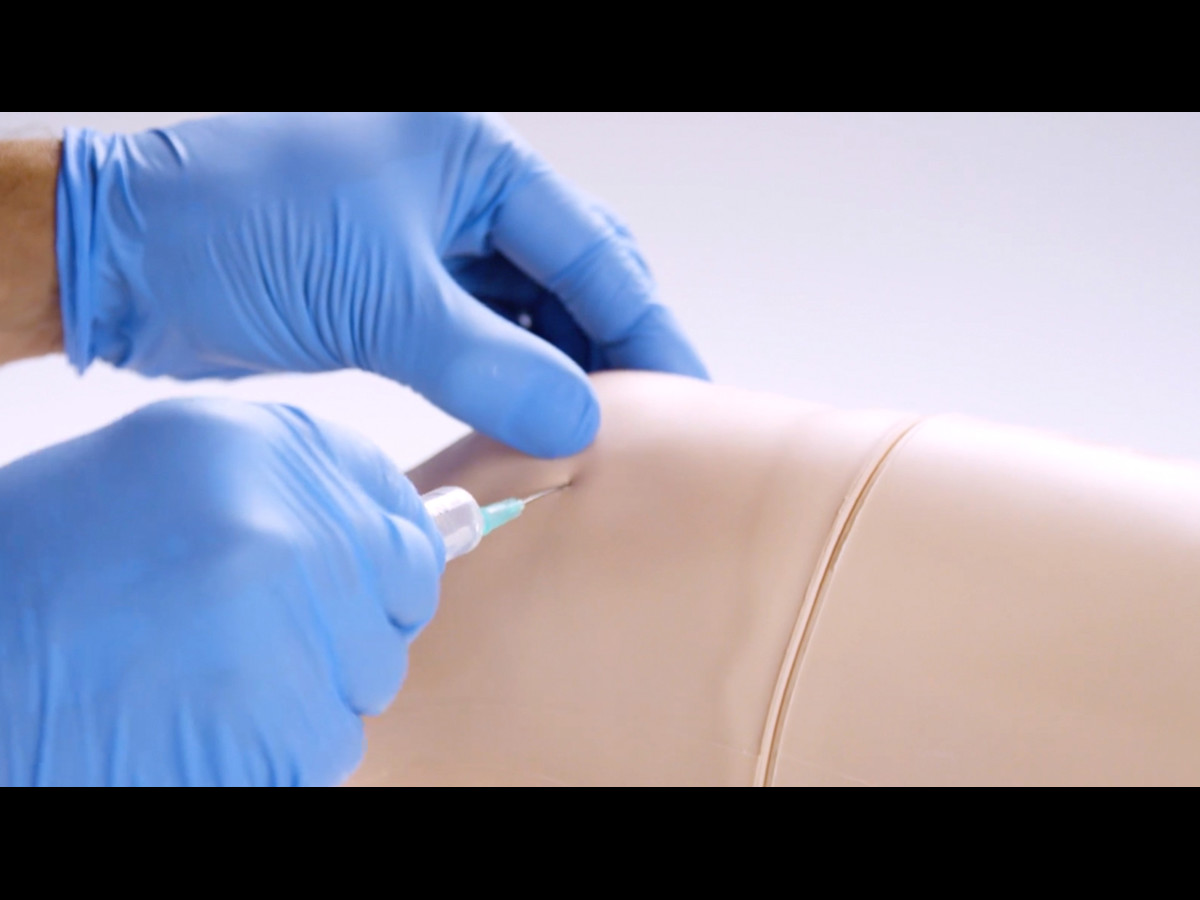
Knä för aspiration och injektion med ultraljud
Skin Tone
Ett anatomiskt korrekt knä för injektion och aspiration av ledvätska i knäleden, från både laterala och mediala aspekter, genom palpation och ultraljudsguidning.
Det robusta knät omfattar knäled, patella, patellarsena och suprapatellärrummet.
De viktiga anatomiska landmärkena är realistiska vid palpation, vilket möjliggör för övning av injektion och aspiration samt förbättrad precision. Diskreta muskel-, hud- och fettlager ger realistisk vävnads- och nålrespons.
Att utföra aspirationer och injektioner i knät är fundamentala färdigheter inom grundläggande medicinsk utbildning samt reumatologi, generell medicin och ortopedisk kirurgi.
Modellen utvärderades av Charles Wakeley (Bristol Royal Infirmary) och Andrew Grainger (Leeds Teaching Hospitals, UK).
Overview
- Klarar 1000+ nålstick med 21 g-nålar
- Exakt, kännbar anatomi med benlandmärken
- Robust, slutet knä med all anatomi
- Viktiga inre landmärken synliga under ultraljud
- Kompatibel med samtliga standardiserade ultraljudsmaskiner
- Echolucent material möjliggör aspiration och injektion under ultraljudsguidning eller användning av palpationsmetoden
- Lämpar sig för grundutbildning och vidareutbildning
- Huden runt knät är vattentät
Realism
- Diskreta muskel-, hud- och fettlager ger realistisk vävnads- och nålrespons
- Anatomisk korrekt ledsäck och kännbar patella
- Ledvätskan har realistisk färg och konsistens
Versatility
- Kan användas med benstöd för rygglägesposition, eller utan benstöd för sidoposition
- Tillgodoser ultraljudsguidade tekniker samt palpation
- En separat vätskepåse och ställning gör modellen enkel att använda och ta med sig
- Tydlig markering på vätskepåsen för att undvika överfyllning
Cleaning
- Huden kan tvättas med mild tvål och vatten
Safety
- Latexfri
Simulated Patient
- This knee model can be used with a simulated patient to practice knee joint aspiration and injection
Anatomy
- Följande viktiga anatomiska landmärken är realistiska vid palpation:
- Hud
- Subkutant fett, quadriceps sena och patellaligament
- Prefemoral fat pad
- Suprapatellar fat pad
- Hoffa (Infrapatellar) fat pad
- Lårben
- Mediala och laterala kollateralledband
- Skenben
- Patella
- Ledhåla och ledhinnefördjupning
- Menisk
- Quadriceps muskelmassa
Skills Gained
- Aspiration av synovialvätska från både laterala och mediala aspekter
- Identifiering av anatomiska landmärken med hjälp av palpationsmetoden eller ultraljudsvägledning
- Placering och hantering av patient
- Igenkänning av utgjutning i led
- Vätska i knät
- Kompetens med ultraljudsteknik och utföra systematiska skanningstekniker och undersökning av knäleden
Works with the following products:
References
AAFP Residency Guidelines, Musculoskeletal and Sports Medicine, Reprint No. 265 (p.4): Indications, limitations, contraindications, and informed consent for office-based musculoskeletal procedures such as: a. Common joint aspirations b. Common joint injections c. Common injections for bursitis d. Common injections for tendinopathy
Core Curriculum Outline for Rheumatology Fellowship Programs, American College of Rheumatology, 2015 "Demonstrtae competency in obtaining synovial fluid from diarthrodial joints, bursae, and tenosynovial structures."
Association of American Medical Colleges:Recommendations for Clinical Skills Curricula for Undergraduate Medical Education,Appendix B; Clinical Testing and Procedural Skills p.23 "Knee examination (including manoeuvres); Musculoskeletal Joint Aspiration Technique; Joint Fluid Examination."
Adult-Gerontology Acute Care And Primary Care NP Competencies 2016, p.42 Primary care practice skills which includes, but is not limited to: • Joint aspiration and injection. Nurse Practitioner (NP) and Physician Assistant (PA) Rheumatology Curriculum Outline, American College of Rheumatology (ACR) and Association of Rheumatology Health Professionals (ARHP), 2017, p.8 Perform procedures, as agreed upon by the supervising/collaborating rheumatologist and NP/PA: 2. Joint and soft tissue injections (adult) a. Indications and contraindications b. Large and medium joints (i.e., knee)
Nurse Practitioner (NP) and Physician Assistant (PA) Rheumatology Curriculum Outline, American College of Rheumatology (ACR) and Association of Rheumatology Health Professionals (ARHP), 2017, p.8 Perform procedures, as agreed upon by the supervising/collaborating rheumatologist and NP/PA: 2. Joint and soft tissue injections (adult) a. Indications and contraindications b. Large and medium joints (i.e., knee)
RAGCP Lifelong Learning Curriculum: Appropriate Procedures (2016): guided and unguided musculoskeletal injections (eg trigger point, joint, bursal, intra-articular, carpal tunnel, nerve blocks) The RACGP Curriculum for Australian General Practice 2011: Musculoskeletal Medicine, Royal Australian College of General Practitioners. Identify and acquire musculoskeletal procedural skill competency levels appropriate for the required service provision level, eg. if performing joint injections ensure skill competency level has been acquired.
Royal Australasian College of Physicians, Rheumatology Advanced Training Curriculum, Royal Australasian College of Physicians, 2013, p.8 "be competent in the use of appropriate diagnostic and therapeutic procedures, including joint and soft tissue injection and aspiration."
ACSEP CURRICULUM, Australasian College of Sports and Exercise Physicians, 2017 Demonstrate proficient and appropriate use of procedural skills, both diagnostic and therapeutic. Assessment: Direct Observation of Procedural Skills (DOPS): Knee joint injection/aspiration Ultrasound guided injection (optional)
NHS National Practitioner Program: Matrix Specification for the Physician Associate (2016). p.105: Skills: Perform knee aspiration using aseptic technique causing minimal distress to patient
Specialty Training Curriculum for Core Medical Training, 2013 CMTs should try to gain at least some experience and independent competency if possible in procedure relating to knee aspiration.
Section: Applied Clinical Skills: General, Page 55, Specialist Training in Trauma & Orthopaedics Curriculum, 2013 “A trainee must be able to demonstrate their competence in the procedures of aspiration and injection of knee joint”.
Specialty Training Curriculum for Sport and Exercise Medicine, Joint Royal Colleges of Physicians Training Board, August 2010, p.53 Skills (mandatory): Safely inject major joints including shoulder, elbow, knee and ankle
The RCGP Curriculum: Professional & Clinical Modules, The Royal College of General Practitioners, 2016, p.327 You may also consider attending courses offering joint injection training.
Specialty Training Curriculum for Rheumatology, Joint Royal Colleges of Physicians Training Board, 2010 ,p.24 Practical procedures: to aspirate and inject joints competently using the appropriate techniques Competency is required in all of the following procedures: o Knee: Joint: Tibio-femoral Soft tissue: Bursal injections.
Clinical Radiology Specialty Training Curriculum, The Royal College of Radiologists, 2019. Ultrasound guided.
Can this knee aspiration and injection model be injected with fluid?
This knee model can be injected with fluids to aid in the practice of administering anti-inflammatory agents. This is commonly done for inflammatory joint conditions such as rheumatoid arthritis, psoriatic arthritis, gout, tendonitis, bursitis and, occasionally, osteoarthritis.
With the additional ultrasound capabilities, users can visualise the introduction of fluid to confirm the correct needle placement.
Does the knee trainer allow for suprapatellar bogginess simulation?
Yes, an accumulation of fluid in the suprapatellar region can be created, this will indicate positive results for ballottement.

